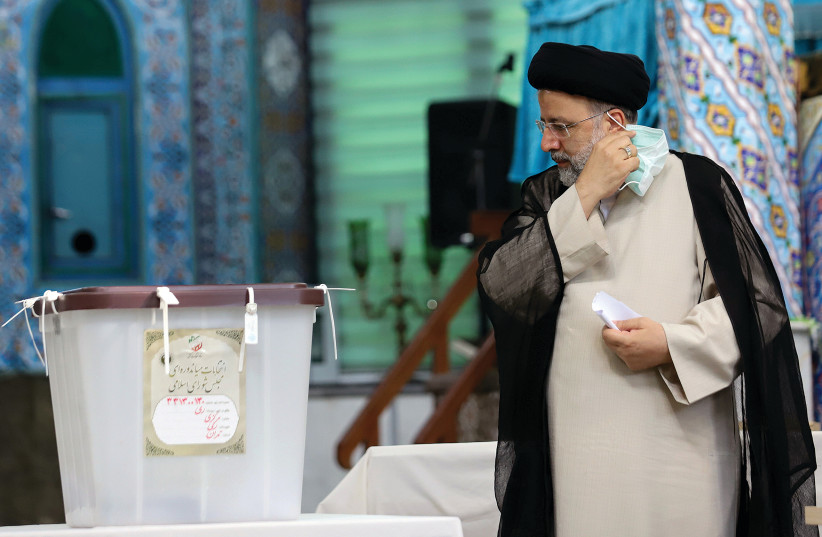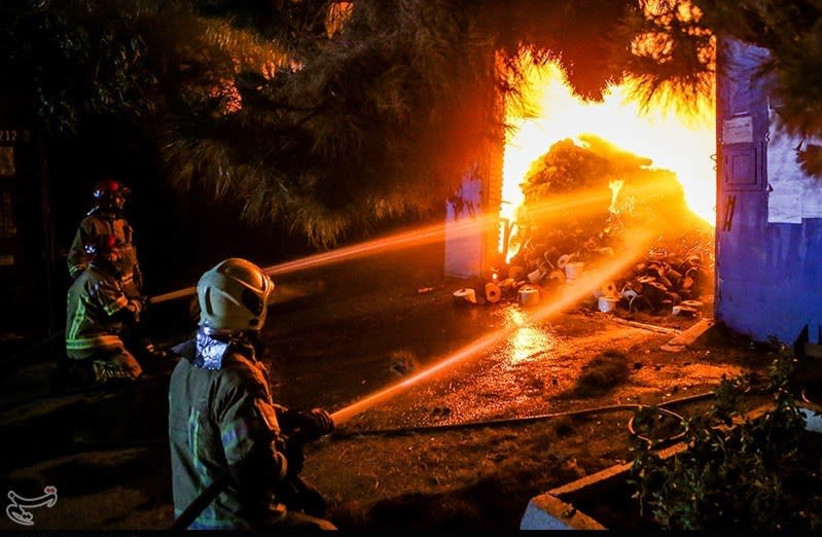Monitoring of Iran’s nuclear program is “no longer intact,” IAEA Director-General Rafael Grossi told NBC News in an interview over the weekend.
He did not mean that the Islamic Republic has completely boycotted his agency’s nuclear inspectors, but rather its continued refusal to grant access to cameras at the key facility of Karaj means the world may never be “able to reconstruct the picture” of what the Iranians are doing.
Maybe just as crucially, Grossi said Tehran has thrown up roadblocks in developing basic communications.
Although in mid-September he had first meetings with lower-level representatives of the new Iranian government put in place by new Iranian President Ebrahim Raisi (elected in June), he revealed in the interview that he still has had no contact with new Iranian Foreign Minister Hossein Amir-Abdollahian.
“I have never spoken to the new foreign minister,” Grossi said. “I hope to be able to have the opportunity to meet with him soon because it’s very important... so when there is a problem, when there is misunderstanding, when there is a disagreement, we can talk about it. I used to have it before, and I would assume” that would be the normal thing.

Grossi’s public airing of grievances with Tehran is significant because the IAEA normally tries to keep any conflicts under wraps so as not to rock the diplomatic boat.
However, with more than four months since the last round of nuclear negotiations – and ongoing signs from the Raisi government that it may drag out restarting talks for months and reaching any deal for an even much longer period – his patience appeared to be running thin.
Trying to present additional nuanced messages, Grossi said he had “no indication” that Iran was currently racing forward to a bomb, but that the world should beware of the North Korean scenario.
Pyongyang threw IAEA inspectors out of the country in 2009, and within years, the North had already developed an arsenal of nuclear weapons.
“The case of the DPRK should remind us of what may happen if diplomatic efforts go wrong,” Grossi said. “It’s a clear example. It’s an indication. It’s a beacon. If diplomacy fails, you may be confronted with a situation that would have enormous political impact in the Middle East and beyond.”
Although the Biden administration has made noises for several months about time running out for Iran to return to the 2015 JCPOA nuclear deal’s limits in exchange for the US lifting sanctions, there has been no deadline mentioned to date.
Similarly, while Israeli officials have sounded the alarm more impatiently than American officials, they have also refrained from imposing any deadline.
EU officials have shown the most patience, some explicitly indicating that they have no “plan B” if Iran refuses to return to the JCPOA or drags out the process while continuing its escalating nuclear violations.
Russia recently gave a first public criticism of Raisi for the slow pace at which his government is reviewing the issue, as opposed to a quick return to the negotiating table. But Moscow and Beijing have generally been viewed as supporting Iran’s positions when in conflict with the West.

Meanwhile, Iran has said it has the right to decline IAEA access to the Karaj facility because Israel sabotaged it during an attack in June.
Jerusalem has not taken formal responsibility, but The Jerusalem Post previously validated Iran’s claims of Israeli involvement.
